|
United States &
Tamil EELAM Freedom Struggle
Politics not my cup of tea says US Ambassador Blake -
Really?
Sri Lanka State Controlled Sunday Observer, 25 April 2008
Comment by
tamilnation.org
"The main point for Tamils to bear in
mind is this: the world’s powerful states have no more commitment to
sovereignty than to human rights. Sri Lanka’s territorial integrity is
no more important to them than Tamils’ freedom. It’s just more useful at
this point. And as the British Prime Minister Lord Palmerston put, ‘we
have no permanent friends and we have no permanent enemies. We have
permanent interests’. It is no different for any other state in today’s
world..."
Blunted Tool - Tamil Guardian Editorial , 24 May 2008
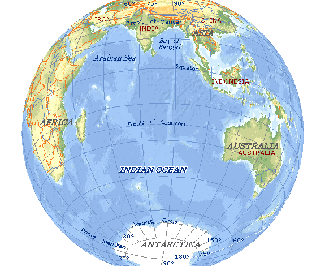 "...the
denial by international actors of their conflicting strategic interests
in Sri Lanka draws a veil over the real issues that any meaningful
conflict resolution process in the island will need to address. Whilst
the goal of securing peace through justice is loudly proclaimed by the
international actors, real politick leads them to deny the
justice of the Tamil Eelam struggle for freedom from alien Sinhala rule.
The harsh reality is that on the one hand international
actors are concerned to use the opportunity of the conflict in the
island to advance each of their own strategic interests - and on the
other hand, Sri Lanka seeks to
use the political space created by the geo strategic triangle of
US-India-China in the Indian Ocean region, to buy the support of
all three for the continued rule of the people of Tamil Eelam by a
permanent Sinhala majority within the confines of one state. The
record shows that Sinhala Sri Lanka seeks to engage in a 'balance of
power' exercise of its own by handing over parts of the island (and
the surrounding seas) to India, US and China... It will not be a matter
for surprise if the US has found Sri Lanka's attempt to engage in a
'balance of power' exercise of its own somewhat irritating - and has
cautioned Sri Lanka privately that Sri Lanka was not a super power and
should not try to behave like one. [added note: And many may
regard that the
voting off of Sri Lanka from the Human Rights Council in May 2008
(against the opposition of China and India) was a practical
manifestation of that irritation and was directed to move Sri Lanka
closer to the US orbit]"
Nadesan Satyendra in International Dimensions of
the Conflict in Sri Lanka, 2 October 2007 "...the
denial by international actors of their conflicting strategic interests
in Sri Lanka draws a veil over the real issues that any meaningful
conflict resolution process in the island will need to address. Whilst
the goal of securing peace through justice is loudly proclaimed by the
international actors, real politick leads them to deny the
justice of the Tamil Eelam struggle for freedom from alien Sinhala rule.
The harsh reality is that on the one hand international
actors are concerned to use the opportunity of the conflict in the
island to advance each of their own strategic interests - and on the
other hand, Sri Lanka seeks to
use the political space created by the geo strategic triangle of
US-India-China in the Indian Ocean region, to buy the support of
all three for the continued rule of the people of Tamil Eelam by a
permanent Sinhala majority within the confines of one state. The
record shows that Sinhala Sri Lanka seeks to engage in a 'balance of
power' exercise of its own by handing over parts of the island (and
the surrounding seas) to India, US and China... It will not be a matter
for surprise if the US has found Sri Lanka's attempt to engage in a
'balance of power' exercise of its own somewhat irritating - and has
cautioned Sri Lanka privately that Sri Lanka was not a super power and
should not try to behave like one. [added note: And many may
regard that the
voting off of Sri Lanka from the Human Rights Council in May 2008
(against the opposition of China and India) was a practical
manifestation of that irritation and was directed to move Sri Lanka
closer to the US orbit]"
Nadesan Satyendra in International Dimensions of
the Conflict in Sri Lanka, 2 October 2007
[see also
A Response by Velupillai Thangavelu from Canada]
The United States reiterated its willingness to
support President Mahinda Rajapaksa to achieve the desired task
of the Commission of Inquiry appointed by the President to probe
into the killings of 17 aid workers and other human rights
violations. In an interview with the Sunday Observer US
Ambassador Robert Blake said the US has no intention in
interfering with the Commission and the US strongly believed in
the independence of the Commission. Blake along with another
diplomat was accused of holding a meeting with the commissioners
said that the agenda of the meeting was only to discuss the
‘logistic matters’.
Excerpts:
Q: Are you satisfied with the support that the
US had offered so far to Sri Lanka and what are the strategic areas where the US
and Sri Lanka should work closely?
A: Yes. The US and Sri Lanka are
close friends for more than 50 years now.
Comment by
tamilnation.org
"Close
friends for more than 50 years".
What are friends for...
"Sri
Lanka is an open, working, multiparty democracy. Citizens elect their
president, members of parliament, and local government officials by
universal adult suffrage. All laws including acts extending the state of
emergency, must be approved by the Parliament... The Constitution guarantees
the independence of the judiciary, and lawyers and judges are held in high
esteem." (U.S. State Department's Annual Human Rights Report to Congress
released February 1985)
"....The democracy of Sri Lanka has been
described in the following terms, terms which are a fair and accurate
description: 'The reluctance to hold general elections, the muzzling of the
opposition press, the continued reliance on extraordinary powers unknown to
a free democracy, arbitrary detention without access to lawyers or
relations, torture of detainees on a systematic basis, the intimidation of
the judiciary by the executive, the disenfranchisement of the opposition, an
executive President who holds undated letters of resignation from members of
the legislature, an elected President who publicly declares his lack of care
for the lives or opinion of a section of his electorate, and the continued
subjugation of the Tamil people by a permanent Sinhala majority, within the
confines of an unitary constitutional frame, constitute the reality of
'democracy', Sri Lankan style.'" - Senator
A.L.Missen, Chairman, Australian Parliamentary Group of Amnesty
International, Australian Senate Hansard, 13 March 1986
The US is a strong supporter of Sri Lanka’s fight against
terrorism. We strongly believe that Sri Lanka like all other countries has an
obligation to defend its people against LTTE terrorism.
Comment by
tamilnation.org
"The most problematic issue relating to
terrorism and armed conflict is distinguishing terrorists from
lawful
combatants" -
Terrorism and
Human Rights - Final Report of UN Special Rapporteur, Kalliopi K.
Koufa, 25 June 2004
"Throwing a bomb is bad,
Dropping a bomb is good;
Terror, no need to add,
Depends on
who's wearing the hood."
R.Woddis 'Ethics for Everyman'
quoted by
Igor Primoratz in
State Terrorism & Counter Terrorism
The US has provided military, law enforcement and other kinds of
support to help the government to defend itself while believing that a purely a
military solution would not be the correct solution for this conflict.
Comment by
tamilnation.org
The power that flows through the barrel of the gun...
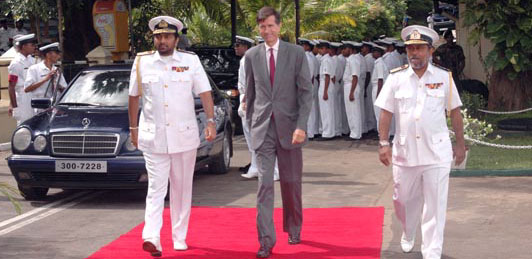
U.S. Military Assistance to Sri Lanka Continues
TamilNet, Thursday, 8 November 2007
The US believes that the answer to the conflict lies with a
power sharing concept which can respond to the aspirations of Sinhalese, Tamils
and Muslims.
Comment by
tamilnation.org
Power sharing concept?
"...Whereas, the Tamil nation of Eelam at the general
election of may 1977 gave a
clear mandate for the restoration and reconstitution of the separate
sovereign state of Tamil Eelam by winning 18 out of 19 Tamil seats in Tamil
Eelam, and Whereas, the Tamil people were again not a party to the
constitution of 1978 which replaced
its predecessor of 1972, and Whereas, the Tamil nation of Eelam opposed
the two constitutions as illegal impositions on them and their territory and
asserted their right of self determination and sovereignty by non violent
agitations, and Whereas, the Sinhala government of Sri Lanka has occupied
the territory of Tamil Eelam with its armed forces and security services and
are denying the
right of self-determination
and
sovereignty of the Tamil nation by the use of force on Tamil people, and
Whereas, the Tamil United Liberation Front which received the
mandate of the Tamil people at the may 1977 general election
for the separate sovereign Tamil state is continuing the
struggle for freedom by non-violent ways preached and practised by
mahatma gandhi and by the late leader of Tamil nation,
S.J.V. Chelvanayagam, Therefore
Resolved, that the Massachusetts
House of Representatives hereby urges the President and the
Congress of the United States to support the
struggle for freedom
by the Tamil nation for the
restoration and reconstitution the separate
sovereign state of Tamil Eelam and to recognize publicly the
right of self determination
by the Tamil people of Tamil Eelam...
Resolution of US Massachusetts House of Representatives
Calling for the Restoration of the Separate Sovereign State
of Tamil Eelam, 18 June 1981
We also believe that in this very important stage of the
conflict, it is very important for the government to address the human rights
issues as well. The US also has concerns about Tamils who suffer
disproportionately due to human rights violations. It is important to give
them a sense of feeling that
they could live with respect and dignity here. So improving the human rights
performances is also an important aspect of our dialogue with the government.
Q: The US
supports developing countries. Sri Lanka has been
battered and bruised by LTTE terrorism and how best the US could
support in curbing terrorism?
Comment by
tamilnation.org
Supporting 'developing countries'? -
Our Friendly Dictators
"Somoza may be a son of a bitch,
but he's our son of a bitch."
US President Franklin D. Roosevelt
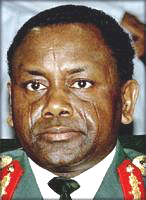
Sani Abacha
Nigeria |
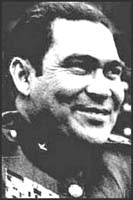
Fulgencio Batista
Cuba |
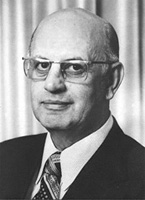
P W Botha
South Africa |
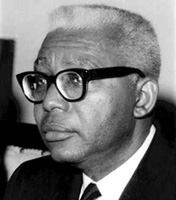
"Papa Doc" Duvalier Haiti |

King Hassan II
Morocco |
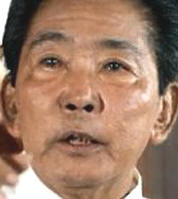
Ferdinand Marcos
Philippines |
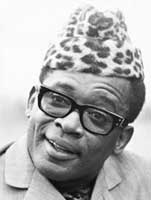
Mobuto Sese Seko Zaire |
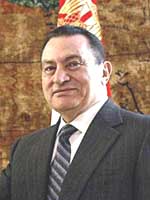
Hosni Mubarak
Egypt |
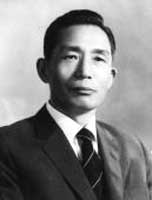
Park Chung-hee South Korea |

Augusto Pinochet Chile |
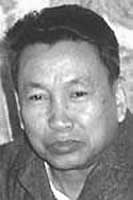
Pol Pot
Cambodia |
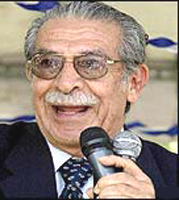
Efrain Rios Montt Guatemala |
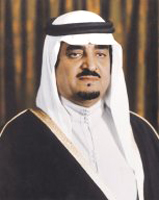
King Fahd
Saudi Arabia |

Shah Pahlevi
Iran |
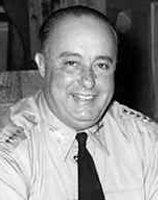
Anastasio Somoza Nicaragua |
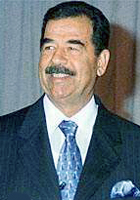
Saddam Hussein
Iraq |
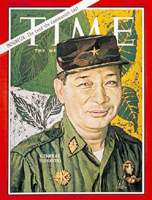
General Suharto
Indonesia |
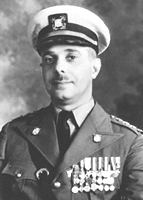
Rafael Trujillos
Dominican Republic |
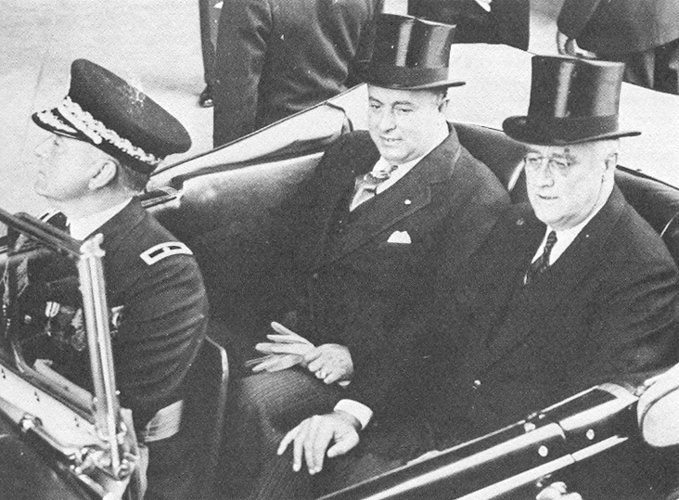
Somoza with
US President Franklin D Roosevelt |
A: I think I have just answered that question. The
US is one of the first countries to
declare LTTE as a foreign terrorist organisation in 1997.
Comment by
tamilnation.org
"...The peoples of the world are engaged in a fundamental
series of
struggles for a just and peaceful world based on
fundamental rights now acknowledged as sacred in a series of widely
endorsed international legal conventions. These struggles are opposed in a
variety of
cruel and brutal ways
by the political, economic and ideological forces associated with the main
structures of domination present in the world
that spread
terrorism in a manner unknown in prior international experience... The
terrorism of modern state power and its high technology weaponry exceeds
qualitatively by many orders of magnitude the political violence relied upon
by groups aspiring to undo oppression and achieve liberation. It is a
cruel extension of the terrorist scourge to
taunt
the struggles against terrorism with the label "terrorism".... We
support these struggles and call for the liberation of political language
along with the liberation of peoples. Terrorism originates from the statist
system of structural violence and domination that denies the
right of self-determination to peoples..."
Geneva Declaration on the Question of Terrorism in
1987
We have also helped to investigate and prosecute people in the
US, who were trying to provide arms to the LTTE. So, the FBI, for an example,
has conducted distinct operations that had resulted in the arrest of many people
and those investigations are on-going. We also have a central bank, which
improves financial investigations to track down the money flow into the LTTE and
help to stop those money from flowing in.
Then the most importantly we work with our friends in the military
to help them to stop import of arms into this country.
We gave them a maritime surveillance system last year - a radar
system - that will give the Sri Lanka Navy a much better picture of LTTE naval
activities in their waters and thereby give them the opportunity to detect LTTE
shipments of arms. I must say they have enjoyed considerable success last year
in sinking many of these ships.
The ban on LTTE is extremely effective in terms of implementing the
American law. People understand that we are very strict about forcing our laws
which will prosecute anyone who is believed to be illegally assisting the LTTE.
Q: Criticism had mounted when the East was about to be liberated.
Now the Mahinda Rajapaksa government has created the right environment to give
more power to the people whereby they can look after their own affairs. What is
your comment on restoring democracy in the East?
A: I think President Rajapaksa and the Sri Lankan Government made
very important progress over the past year. First they have expelled the LTTE
from the East. That is a positive development and secondly they have restored
government services. In the East they have reopened schools, hospitals and
government institutions. Now there is a greater sense of normalcy in many towns
in the East. People are out late at nights, going for movies and for shopping
which is a big achievement after 20 years.
Comment by
tamilnation.org
Sense of normalcy and people are going for movies...
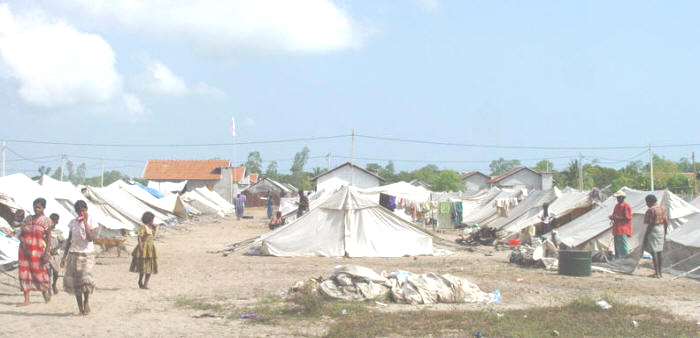
Vaharai tragedy - theUnfolding Misery
There is stability now, in that part of the country.
With regard to the election we always support the principle of free elections.
It is important to allow the local inhabitants to represent their views. There
have been some controversies which were highlighted in the media.
The
Opposition parties have alleged that there were many irregularities. The US is
not in a position to judge since we did not have observers on the ground. But we
think that it is important for the government and the new Provincial Council to
look into those charges seriously and act on them.
In the long run it is
really important to consider what the people of the East believe. If they
believe that it was largely a free and fair election and they support the new
council, then the international community should also be prepared to accept
their decision in toto.
In terms of what happens after, I think that the
new Chief Minister has an important challenge on his hand. First of all, he has
to assure security, because on one hand he is the chosen Chief Minister of the
Eastern Province and on the other hand he is the head of the TMVP which still
has armed cadres.
So, he is in a difficult position where he has to
enforce state law as the Chief Minister and on the other hand a fairly large
number of armed cadres. I think something must be done and they can not continue
to do illegal activities in the East.
Otherwise they would undermine the
leadership of Pillaiyan and the transition that the TMVP is trying to make while
being a para-military group and a political party. So, we support the idea of
them of being a political party. But that transition must be completed and
certainly they can not be in both.
Beyond the challenge of security, I
think that the new Chief Minister in order to secure the support of the people
of the East, it is very important to show that he has been given opportunities
to serve all other communities in the East and pursuing development in a neutral
way.
And I think that way he can ensure that there is harmony among
these communities and also stability in the East, which will automatically reach
to a greater development and priority for the people of the East.
Q:
Will the US continue with its support to develop the East?
Comment by
tamilnation.org
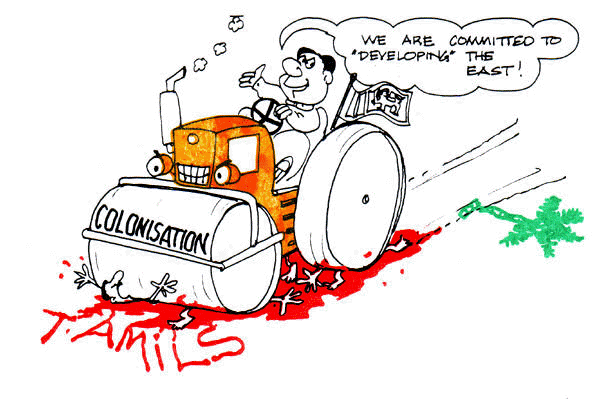
A: Yes, we have quite a number of projects with the assistance
of the private sector, for example the vocational training. We have just
announced a major project in Batticaloa to develop dairy industry and another to
grow vegetables for exports.
We strongly believe that we need to help
the people of the East and give them economic opportunities. We believe that
there is a big role for the private sector to play. We have proposed to give
more assistance for the East and the US government is considering it now.
Q: You have always advocated a credible political package to
meet the aspirations of the Tamils. How do you see the
APRC proposal to implement the
13th Amendment?
A: The East is a fine laboratory to show that powers within the 13th
Amendment be devolved within the Eastern Provincial Council.
Comment by
tamilnation.org
A fine laboratory?
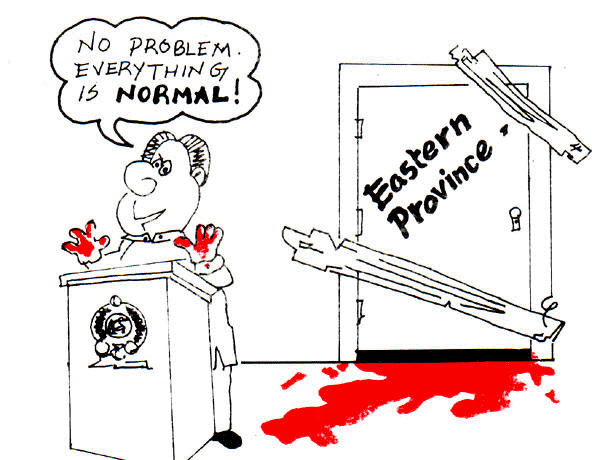
"...whilst the current
landscape in the East is one of humanitarian crisis and endemic human
rights abuses, the current focus on human rights issues, which whilst
performing the essential task of exposing the authoritarianism and
violence of the current regime, is insufficient to capture the cold
calculations and reasoning in the intentions of the Sri Lankan State
which has once again
returned to
the the logic of Sinhala colonisation.."
David Rampton, Lecturer, SOAS, University of London
But I think the government needs to go beyond the 13th
Amendment. Implementing the 13th amendment is itself will not satisfy the
aspirations of the Tamils. The way they develop must be a significant power
sharing proposals through the APRC using some other mechanisms. But I do believe
that the APRC has made lots of progress.
Comment by
tamilnation.org
APRC has made lots of progress...
 "After
labouring for 63 sessions, over 250 hours and spending
millions of tax payers' rupees, the All Party
Representative Committee (APRC) and President Mahinda
Rajapakse last week delivered an ant in what is nothing
short of a massive political fraud perpetrated on both
the Sri Lankan people and the international community. "The
Political Fraud behind the APRC Farce, 27 August 2007 "After
labouring for 63 sessions, over 250 hours and spending
millions of tax payers' rupees, the All Party
Representative Committee (APRC) and President Mahinda
Rajapakse last week delivered an ant in what is nothing
short of a massive political fraud perpetrated on both
the Sri Lankan people and the international community. "The
Political Fraud behind the APRC Farce, 27 August 2007
According to Prof. Vitharana over 90 percent of their work has
been done and I think the APRC has been a useful mechanism to get the Southern
consensus to move forward. The most important thing is to come up with an idea
which is really welcomed by the Tamils.
I think that it is important for the government to consult a wide range of
Tamils. We are not calling for negotiations with the LTTE. That is something
that the government has to decide.
It is important to recognize more
than half of the Tamils are living outside the Wanni. I think their interests
also should be respected as well. So, people like Anandasangaree and other
elected representatives in the government controlled areas are needed to be
brought into this process and consulted.
Q: You mentioned the solution
should be something beyond the 13th Amendment. So what is your proposal to end
the national issue?
A: I think we need to distinguish as these are two different things. The
President Rajapaksa’s proposal to implement the 13th Amendment is a good idea.
But I don’t really want to come up with a proposal because whenever I try to say
something I am later accused of trying to dictate to the Sri Lankan people. The
US does not have any intention of doing that. It is up to the Sri Lankan people
to decide what is best for them.
Q: What do you think that Sri Lanka is
facing today - is it a war on terror or an ethnic problem? What sort of a
solution do you suggest to end the conflict in the island?
A: I think
all these are loaded terms. I am reluctant to say this is an ethnic conflict but
it is a
civil conflict.
I always remind people who are visiting from USA that Sinhalese, Tamils and
Muslims lived together and
continue to live peacefully together.
Tamils are living in Colombo peacefully with their Sinhalese and Muslim
friends.
Comment by
tamilnation.org
Living peacefully together...
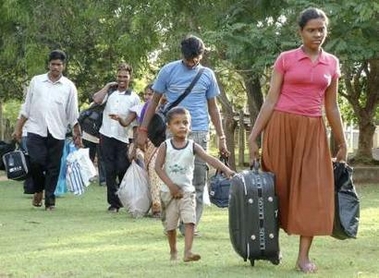
Sri
Lanka begins forced eviction of Tamils from Colombo, June 2007
So
there is no ethnic conflict here. And certainly the government is defending
itself against terrorism.
Q: It is clearly proven that the LTTE is not
the sole representative of the Tamils. And also it has been proved the LTTE’s
political agenda
is different from the Tamils. What do you have to say?
A: I do actually see there are important differences here. From my
discussions with Tamils I know that over 95 percent of them support a solution
within a framework of a united Sri Lanka.
They are not seeking an independent Tamil Eelam which Prabhakaran is
seeking.
Comment by
tamilnation.org
"From my discussions with
Tamils"...
There was a joke which went the rounds in the
aftermath of Stalin's 1968 suppression of the Dubcek uprising in
Czechoslovakia. It is said that two Czechs were walking in the streets of
Prague. A Rolls Royce and a Skoda were parked on the street. One Czech told
the other - 'You know, the Skoda is a better car. The other Czech said -
'Don't be silly. Don't you know your cars?'. The first Czech replied - 'I
know my cars, but I don't know you!".
I think it would be very useful for Prabhakaran to
give up this idea of seeking an independent Tamil State and agreeing to
negotiate with a united Sri Lanka. I think this would give him lots of
credibility to respond to lots of scepticism here in the South that the LTTE
would never negotiate with the government.
Comment by
tamilnation.org
Credibility with the Tamil people?
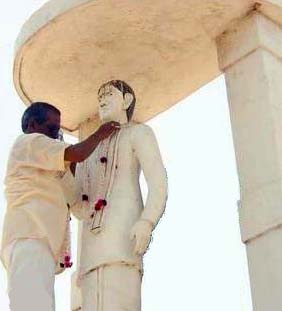 "Throughout
the ages the Sinhalese and Tamils in the country lived as distinct sovereign
people till they were brought under foreign domination. It should be remembered
that the Tamils were in the vanguard of the struggle for independence in the
full confidence that they also will regain their freedom.
We
have for the last 25 years made every effort to secure our political rights on
the basis of equality with the Sinhalese in a united Ceylon. It is a
regrettable fact that successive Sinhalese governments have used the power that
flows from independence
to deny us our
fundamental rights and reduce us to the position of a subject people. These
governments have been able to do so only by using against the Tamils the
sovereignty common to the Sinhalese and the Tamils." "Throughout
the ages the Sinhalese and Tamils in the country lived as distinct sovereign
people till they were brought under foreign domination. It should be remembered
that the Tamils were in the vanguard of the struggle for independence in the
full confidence that they also will regain their freedom.
We
have for the last 25 years made every effort to secure our political rights on
the basis of equality with the Sinhalese in a united Ceylon. It is a
regrettable fact that successive Sinhalese governments have used the power that
flows from independence
to deny us our
fundamental rights and reduce us to the position of a subject people. These
governments have been able to do so only by using against the Tamils the
sovereignty common to the Sinhalese and the Tamils."
"I wish to announce to my people and to the country that I
consider the verdict at this election as a mandate that the
Tamil Eelam nation should exercise the sovereignty already vested in the Tamil
people and become free."
Statement by S.J.V.Chelvanayagam Q.C. leader of Tamil United Front after winning
the by-election for the Kankesanturai Parliamentary seat, held belatedly on 7
February 1975, two years after he had resigned the seat to seek a mandate
for Tamil Eelam.
The LTTE has a responsibility to show that
they are prepared to negotiate in a genuine way.
Comment by
tamilnation.org
ISGA and discharging the responsibility 'to negotiate in a genuine
way'...
"Applauding the Norwegian government for its ongoing
facilitation efforts, the U.S. Embassy in Sri Lanka said that it also
believed that "the U.S. Embassy has taken note of the LTTE's delivery
of counterproposals made in response to the Sri Lankan Government's interim
administration proposal for the North and East. The Embassy urges both
parties to build on this step by resuming negotiations in a timely
manner..."
U.S. Government supports resumption of peace negotiations
"The Sangam and the world at large are shocked at the
reckless behaviour of Sri Lanka President Kumaratunge, who places her own
political agenda before the needs of the people of the island. ..On Oct. 31,
2003 the LTTE, on behalf of the Tamil people, announced their
proposal for an Interim Self-Governing Administration (ISGA) of the
Tamil areas. This proposed ISGA is a significant step toward a peaceful
resolution of the decades-long conflict between the Tamil and Sinhalese
peoples. The world applauded this proposal by the LTTE. US Deputy Secretary
of State Armitage said that the proposal is "the first time I have seen such
a comprehensive delineation of the aspirations of the LTTE...it is
significant," the EU stated that the proposal is an "important step forward
in the peace process," and ex-Ambassador to Sri Lanka Schaffer said, "the
LTTE has presented an ambitious proposal. Sinhala chauvinists - of which
President Kumaratunge is one - consider this proposal for an interim
autonomous entity anathema. Kumaratunge used this eminently reasonable and
achievable proposal of the LTTE as an excuse to precipitate a political,
constitutional and military crisis."
US based Ilankai Tamil Sangam on Kumaratunga's Coup & the Peace Process
Q: What is your view about the on-going military operations to
liberate Wanni where people are living under severe hardship and the young and
the old were being conscripted by the LTTE?
A: With respect to the
on-going military campaign, as I said earlier, the US does not believe that a
purely a military solution is possible. The 25-years long experience of war here
has shown that the LTTE is a
rather formidable organisation and it is very difficult to defeat them
militarily.
So the best way to reach a solution is through a political
solution to address the aspirations of the Tamils and all the communities. And
again the Tamils in Wanni and rest of the country need
a sense of dignity and
conviction in future that they will be able to have an important say over
matters that concern them especially the areas where they are predominant.
Comment by
tamilnation.org
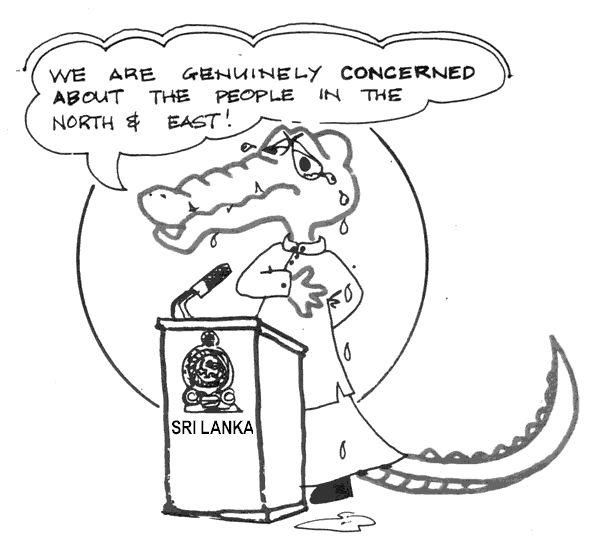
They should be able to have a high degree of self governance
within a united Sri Lanka. I believe that is really a way forward to achieve a
peaceful settlement to this conflict.
Comment by
tamilnation.org
Way forward to achieve a peaceful settlement to this conflict...
"Martin Woollacott's comments in the Guardian (in
1993), on the Bosnian conflict offer food for thought about the real
world: ''Nobody involved in this war, in fighting it or in trying to
stop it, was born yesterday. What matters most in any agreement, is
territory, what matters secondly is international legitimacy, what
matters thirdly are constitutional arrangements and what matters least
are human rights provisions..'
The Tamils, too, were not born yesterday. They know
that it is because the armed resistance of the Tamil people led by the
Liberation Tigers has succeeded
to the
extent that they hold territory in the North-East that Tamil rights
are on the international agenda.
They know that if that resistance fails, Sri Lanka
will have no further use for Tamil quislings. They know that if that
resistance fails, they will be left with the pleaders of the TULF rump
whose efforts during the past forty years and more did little to stop
the
onslaught on
Tamil rights and Tamil lives. Territory, international
legitimacy, constitutional provisions and human rights are, ofcourse,
inter connected. Without human rights, legitimacy may be more difficult
to achieve. Without legitimacy, it may be more difficult to hold
territory over a period of time. But without territory, a people will
cease to exist - and in the end it is this which is fundamental.
And it is this which the Sri Lanka government understands only too well
when it prevaricates on the merger of the North-East, when it seeks to
divide the Tamil homeland and when it launches its genocidal military
operations in the North-East. "
Nadesan
Satyendra - Self Determination & the 'Multi Ethnic Plural Society'
15
September 1993
Q: You have just mentioned that the military cannot defeat LTTE
and this was the assumption before the East was liberated by the military. So
how can you say that the military cannot defeat the LTTE in North?
A:
The East was a different situation and the LTTE was spread out. But Wanni is
more in the heartland of the LTTE. Here they have been prepared for many years
to face any kind of an attack.
Q: Do you still believe that Sri Lankan
Security Forces cannot capture
Prabhakaran?
A: I think you have to ask this question from the Forces. What I can say
is that the US does not have any love for Prabhakaran. But it is going to be
difficult for the government to get him.
Q: He is the ‘Most wanted man’
by the Indian government for the
killing of the
late Prime Minister Rajiv Gandhi. In which way could the US help the
government to bring him to book?
A: I can not really say how, as we are
not involved in any military efforts to capture him. We believe that the best
way would be, not with the gun but
through peaceful means.
Q: Do you think that both Al-Qaeda and the LTTE, are ruthless terrorist
organizations and how do you categorise the LTTE?
A: I would not say
they are the same at all. I do not want to get into the business of comparing
terrorist organisations because every terrorist organization is different. And
it is also
important to address the LTTE
in the Sri Lankan context.
Comment by
tamilnation.org
"Well, I believe that terrorism is a tool
that has been utilized throughout history to achieve certain objectives.
Some have been ideological, others territorial. There are personality-driven
terroristic objectives. The bottom line is, you can't lump all terrorists
together. And I think we've got to do a much better job of clarifying what
are the motivations, the raisons d'ętre of terrorists. I mean, what the
Tamil Tigers
are fighting for in Sri Lanka, or the
Basque separatists in Spain, or the insurgents in
al-Anbar province may only be connected by tactics. They may not
share all that much in terms of what is the philosophical or
ideological underpinning. And I think one of our mistakes has been painting
with such a broad brush, which has not been particularly helpful in
understanding what it is we were up against when it comes to those who
pursue terrorism for whichever ends they're seeking. "
"You Can't Lump All
Terrorists Together" - Hillary Clinton
Q: But some countries call the LTTE as freedom fighters?
A: I do not respect the freedom fighter argument. Certainly any group
which is working for freedom, they should do it in a peaceful manner. They can
not use violence and terror. That is same with the LTTE and we have consistently
said they must
renounce terrorism and
stop using violence.
Comment by
tamilnation.org
"...Do we not deliberately obfuscate when we
conflate the two words 'terrorism' and 'violence'? ... The Cuban revolution
was violent but it was not terrorism. The war against Hitler was violent but
it was not terrorism. Again, the war against Saddam Hussein was violent but
presumably, it was not 'terrorism'. And so too the continuing war
against the Taliban in Afghanistan is violent but presumably, it is not
terrorism.... What are the circumstances in which a people ruled by an alien
people may lawfully
resort to arms to resist that alien rule and secure freedom? Or is it that
there are no circumstances in which a people ruled by an alien people may
lawfully resort to arms to to liberate themselves? And if all resort to
violence to secure political ends is not terrorism, then
what is terrorism?
..to categorise a combatant in an armed conflict as a 'terrorist'
organisation and seek to punish it on that basis, is to.. assert in effect
that a people ruled by an alien people may not, as a last resort, lawfully
resort to arms to resist that alien rule and secure freedom... "
Nadesan Satyendra
- On Terrorism & Liberation
Q: The US and Sri Lanka are engaged in a common fight -
combating terrorism. But some critics say that the US has double standards when
combating terrorism against the US and dealing with the terrorism in countries
like Sri Lanka. What is your comment?
A: I really don’t agree with that. I think we have a very consistent
approach and even in places like Iraq where we are confronted with a very
serious terrorist problem and we are in favour of a political solution there.
The insurgency strategy of the US is based on using a wide range of tools to
combat terrorism and it is just not the military strategy.
Comment by
tamilnation.org
A wide range of tools...
1."..In Sri Lanka, the government appears to
have concluded.. that law enforcement and compulsion can end a terror
campaign. However, the LTTE has a much broader base of support than the JVP
ever did, and the LTTE is unlikely to go away simply through
government-applied force... One of the most effective strategies at
governments' disposal may be to split off pragmatists from radical
rejectionists. Such efforts can diminish public support for the
terrorists and deny them a strong base from which to operate...So called
'get tough' measures against terrorist groups can have unintended
consequences. Trying to 'decapitate' a movement may radicalise the whole
movement ... Assassinations and military force can provoke a desire for
revenge, create mythologies of martyrdom, or feed paranoia and secretiveness
(which makes the movements even harder to penetrate for reasons of either
understanding motivations or foiling actions).."
How Terrorism Ends - United States Institute for Peace Study, May 1999
2. "The March For Justice is dedicating its
"Shock and Awe Gallery" as an authentic historical documentation and
evidence of the U.S./British Crime of the Century. As attacks on
freedom and the
free have become characteristic of contemporary America, we advise and
encourage all those who support
Truth and Justice, to save our material and to make the utmost use of
it, as its intended objective is revealing facts and reality."
What is
Terrorism? Shock and Awe?
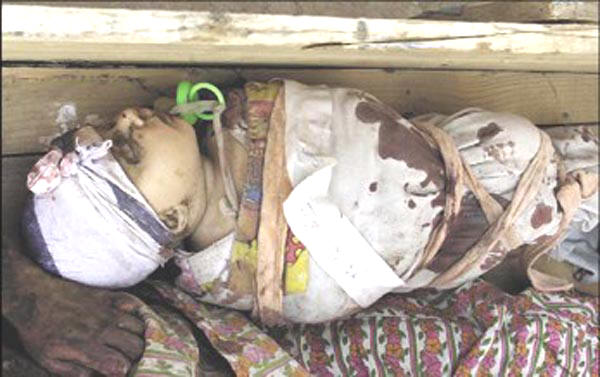
In Iraq we are engaged in with certain strategies to bring down
the levels of killing and violence both against American forces and other
coalition forces. The ordinary Iraqis have come way down over the last years.
Iraq is a major domestic issue an year ago in my country and now people have
confidence that Iraqis are in a better track and hopeful about their future.
So the policies are the same that we are advocating here in Sri Lanka and so I
can say there would not be any double standards.
Q: In this situation what are the priorities of a country - combating terror
to save lives or safeguarding human rights?
A: Well. I do not think there is contradiction between the two. I think one
has to devote. Clearly one has to defend one’s country against terrorism. That
is extremely important. For any government the most important priority is to
defend its citizens. It is true in the US and
it is true in Sri Lanka and every other country in the world. But we also
believe that it is possible to preserve human rights.
So, for example,
one of the very difficult problems the government faces is to identify suicide
bombers. How they find these people before they carry out their murderous acts.
And I believe that the way to do that is still to arrest, question in a humane
way and if they are suspected of the crime produce them in courts.
But
do not use
extra
judicial killings and
other kind of
things. And those acts will undermine the long term solutions. So, it is
much better to use
rule of law to address terrorism. Accountability of rule of law is extremely
important.
Comment by
tamilnation.org
Rule of law for more than 50 years...
"Communal riots in which Tamils are killed,
maimed, robbed and rendered homeless are no longer isolated episodes; they
are beginning to become a pernicious habit..." [see
1956,
1958,
1961,
1974 and
1977] -
Paul Sieghart,
Report of a
Mission to Sri Lanka on behalf of the International Commission of Jurists,
March 1984
"...Impunity means freedom from
punishment. During the past five decades and more the Sri Lankan
security forces, para military groups and
Sinhala goondas have violated the rights of the Tamil people, have
killed,
tortured,
raped
and
massacred with impunity, free from any fear of punishment. The
pattern of behaviour established by the Sinhala Sri Lanka
government's refusal to adequately investigate the crimes committed
against the Tamil people and the overt statements made by Sinhala
politicians from time to time expose the true nature of the assimilative
agenda of
Sinhala Buddhist governments..."
Impunity: Crime & No Punishment
Q: Do you think that Sri Lanka has violated UN Conventions when
strengthening bi-lateral relations with Iran?
A: I do not think so and
not to my knowledge. But it is up to the government to be aware of those
resolutions.
Q: Iran is in rivalry with the US with regard to nuclear
issues. Therefore how do you see the recent visit of the Iranian President to
Sri Lanka?
A: Our concerns about Iran is well-known. President - Bush,
Secretary of State - Rice and many our leaders are concerned about their nuclear
capabilities. We acknowledge their right to develop civil nuclear energy for
energy purposes. But the US opposes nuclear weapons. Similarly we have expressed
our deep concern about the Iranian support for international terrorism
particularly in the Middle East, especially the support for groups like
Hisbulla. We always want all our friends to make the same point for Iran.
Comment by
tamilnation.org
""India and Iran are ancient civilisations
whose relations span centuries. Both nations are perfectly capable of
managing
all aspects of their relationship with the appropriate degree of
care and attention. Neither country needs any guidance on the future
conduct of bilateral relations as both countries believe that engagement and
dialogue alone lead to peace," Indian Foreign Ministry spokesman Navtej
Sarna, a foreign ministry "-
India
rejects US advice on Iran, 24 April 2008
At the same time we understand that Sri Lanka has to develop
relationships with Iran and we do not have objections if they donate funds for
education projects in the South.
Comment by
tamilnation.org
As always the devil is in the small print.
Education projects in the South?
"...Iran will increase its investment in
the expansion project of an oil refinery in Sri Lanka up to US$ one
billion... Iran has also agreed to provide low-interest credit to Sri
Lanka to enable it to purchase military equipment from Pakistan and
China and to train a small group of Sri Lankan Army and intelligence
officers in Iran."
Iran to
Train Sri Lankan Intelligence & Army Officers, 24 April 2008 - B.Raman
Additional Secretary (retd), Cabinet Secretariat, Govt. of India, New
Delhi, and, presently, Director, Institute For Topical Studies, Chennai.
Q: We were made to understand that you had met the members of
the Commission of Inquiry which probes into 15 cases of killings of Aid workers
and other alleged HR cases? What was your area of interest while meeting the
commissioners?
A: Yes, we did have a short meeting with them, and the
purpose of the meeting as Justice Udalagama has explained was purely a technical
matter. The Commission did not get the support of the IIEGPS and the Commission
has the problem of how to continue the video conferencing to record testimony of
witnesses resident abroad. So the question arose as to whether the international
community could continue to fund the video conferencing.
Since the US
and the other partners in the IIEGP process happened to fund the process all
along, we discussed the matter whether to fund the particular video
conferencing. So that was real the purpose of the meeting.
The US do not
have any intension of whatsoever in interfering anyway with the Commission of
Inquiry. We strongly believe in independence. I really do not share the
allegations that we are interfering with the Commission and we simply looked
into logistic matters.
We support the Commission appointed by the
President. And he has reiterated on many occasions that his commitment in seeing
this commission achieve its desired task. So we totally support the President in
this regard.
|